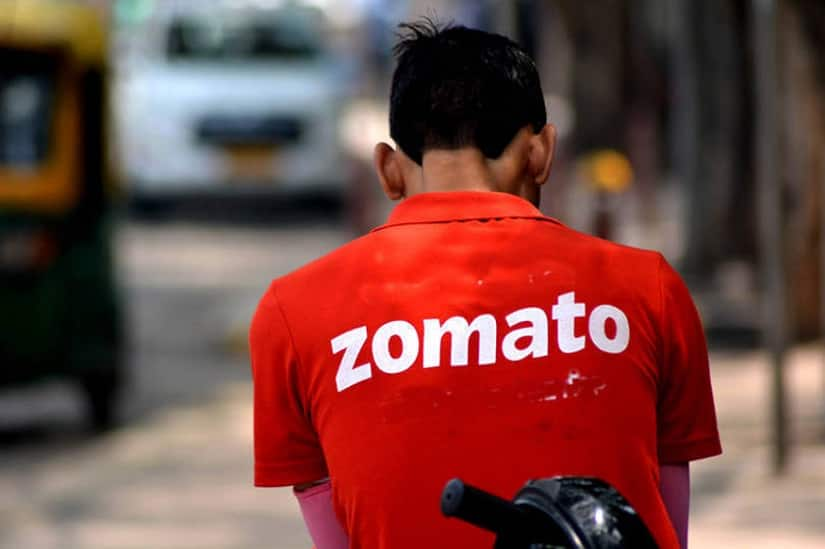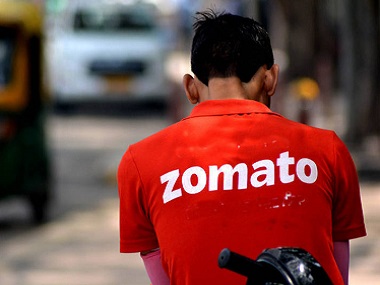The oldest-running dramedy in the modern world could very well be called “The Spectre of Secularism-Communalism”. After Karl Marx, one could say, the entrenched powers of this country have entered into a holy alliance to make sure that this drama is never-ending with virtually no expiry date in the foreseeable future. The lead artistes come from seemingly varied and, at first blush, antagonistic backgrounds. They include academics, Hindu-Muslim elites, left-liberal spokespersons, right-wing trolls, and political personnel straddling the entire right-left spectrum of our civil society. The opening bell was rung by an internet troll, who went by the Twitter handle @NaMo_SARKAAR, when he refused to accept food delivery from Faiyaz, a part-time employee of Zomato. All hell broke loose when Zomato declined to cancel the order or refund the man in question — Amit Shukla — who took to Twitter to proudly declare that he practices untouchability during the month of saavan [sic]. Zomato’s rival Uber Eats came out in support of the restaurant aggregator and soon after, Twitter was flooded with back-and-forth hashtags ranging from #BoycottUberEats to #IDontStandWithAmit. [caption id=“attachment_7112561” align=“alignnone” width=“825”]  In the recent row, Zomato was berated or extolled in equal measure for either being anti-Hindu or for upholding the plural ethos of the country. File Image/News18[/caption] To be fair, Shukla was doing his job both as a troll, going by the hullaballoo he generated and the Twitter army that supported him on cue, and as a spiritually ordained pandit, where he is vested with the authority to commentate on all matters Hindu. That the “pandit” was hardly a “pundit” was amply evident when eager Twitterati fished out his old tweets including ones directed at Taslima Nasreen and Priyanka Chopra’s breasts. In all likelihood, Faiyaz was also fulfilling his caste-ordained duty, if we acknowledge that most Dalit-Bahujans of this country, the majority of the population, are employed in soul-crushing non-formal sectors where job security is always a pipe dream. But the mainstream press was more than eager to reduce the issue at hand to a Hindu-Muslim question. Zomato was berated or extolled in equal measure for either being anti-Hindu or for upholding the plural ethos of the country. Some commentators rightly called out the alleged virtue-signalling stance adopted by the Zomato CEO but could hardly escape the quicksand of the religious binary, contrasting for instance the “lived religion” of Hinduism against the codified nature of Islam and Zomato’s inability to treat them both equally.
It goes without saying that food is singularly the most important aspect in the typical life of a human being.
When viewed through the lens of culture, food transforms into diet and the typical life turns into the workaday life, regimented through thrice-a-day meals at regular intervals. Naturally, a panoply of experts, ranging from doctors, dieticians, nutritionists, and fitness instructors to restaurateurs, chefs, religious mediators, and political commentators, finds it easy to smuggle dubious ideas into the lives of people through a bevy of discourse around food. These are mostly top-down ideas subjected on an “unnameable mass of people” sanctioned by institutional structures and increasingly administered via mass media (including social media). These are top-down elite structures not just because these institutions are dominated by savarnas but also because there is a disjuncture between these elites and the masses. This disjuncture, especially within the religious institutional structure, was most notably articulated by Babasaheb Ambedkar in Annihilation of Caste, when he observed: “Each caste is conscious of its existence. Its survival is the be-all and end-all of its existence. Castes do not even form a federation. A caste has no feeling that it is affiliated to other castes, except when there is a Hindu-Muslim riot. On all other occasions each caste endeavours to segregate itself and to distinguish itself from other castes.” It would follow that Amit Shukla, by virtue of his caste status and as a cog in the wheel of this top-down administration, was the one who was actually virtue-signalling with regard to the “right religious practices” to be adopted by his fellow brethren. This he maintained by making clear that he is a Brahmin as well as a member of the Hindu samaj at the same time. As Dr Ambedkar put it, caste cleavages and hierarchies were maintained even as the Muslim was signalled as an enemy against whom a putative unity was to be preserved. History shows that Dalit-Bahujans care less about such edicts, increasingly evident in the evermore desperate tactics adopted by the ruling class to maintain its double mandate to be “a part” of the hoi polloi as well as to be “a part apart”.
This is primarily because for the Dalit-Bahujans, food historically has been less a question of diet and more a problem that has had complex existential dimensions.
For instance, while the cow is treated as a sacred animal by caste Hindus, Marathi author Daya Pawar in his searing autobiography Baluta describes how the “death of cattle brought great excitement to the Maharwada”. The landmark Baluta, translated into English in 2015 but published in Marathi in 1978, is often considered as the work that introduced the genre of Dalit autobiography into literature. In the book, Pawar mentions that the Maharwada would get even more excited if the cow in question had fallen of a cliff, for in such a case, the meat “would be fresh”. This from a community that was condemned to eat carcasses of animals. The autobiography also offers a rare glimpse of how a culture from below would travel upwards, albeit at a very micro level. Pawar talks of his younger days when he once carried some “crisply roasted chaanya” (dried thin strips of cow meat) to school when a Brahmin friend pleaded for a taste. Soon, other upper-caste boys at the school were also eating the “crunchies” with relish. The Zomato controversy turns weary if it is reduced to yet another story brimming with stale clichés of communal cleavage or pious exemplars of communal harmony. What should get far more of our attention is the fact that unless liberal discourse fails to disaggregate humanistic categories such as Man-Woman, Hindu-Muslim, Vegetarian-Nonvegetarian, Rich-Poor, among others, not least through the lens of caste inequity, the ground beneath our feet would inexorably shift towards a terrain downright dictated by Brahminical interests. James Michael is an independent researcher based in Mumbai


)

)
)
)
)
)
)
)
)



